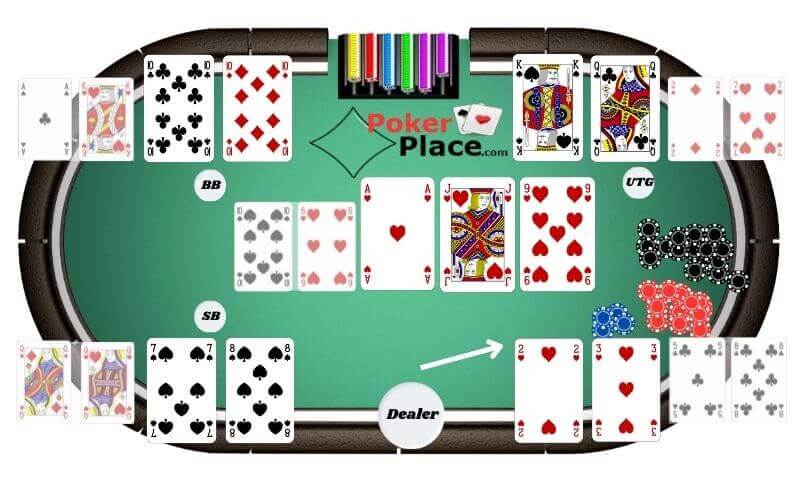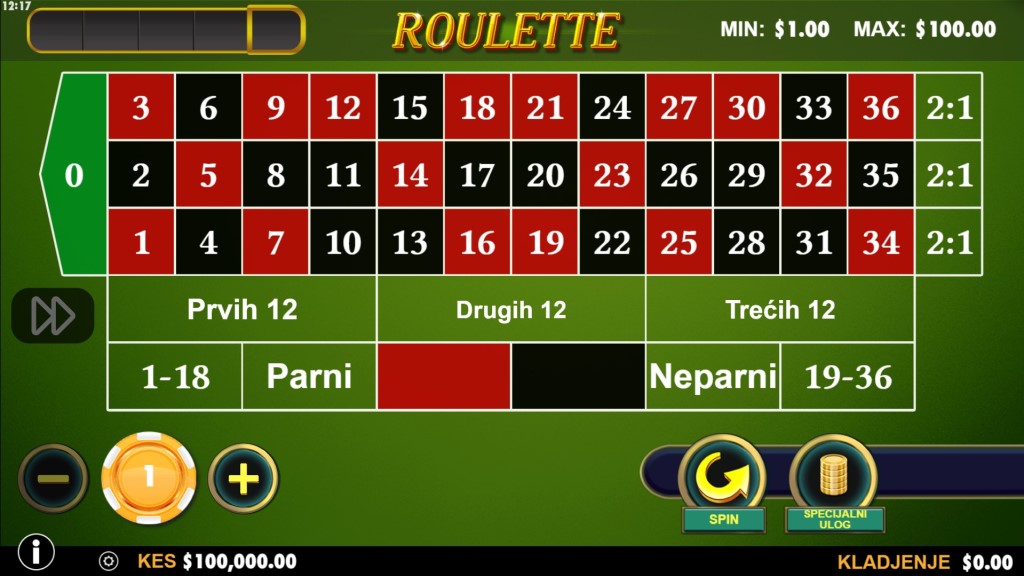Welcome to the ultimate poker guide, a captivating and exhilarating card game that has charmed countless individuals across the globe. This all-encompassing article is designed to provide both novices and seasoned players with the essential knowledge and tactics required to succeed in poker. Covering everything from the fundamental rules to advanced strategies, we invite you to immerse yourself in this beloved casino classic. So, let’s shuffle the deck, deal the cards, and venture into the fascinating world of poker!

What is Poker?
Welcome to the world of poker—a captivating and strategic casino game that combines skill, strategy, and a hint of luck. Played with a standard deck of 52 cards, poker accommodates a minimum of two and a maximum of ten players. The primary goal of the game is to claim the pot, which accumulates the bets made by players during each hand. Participants strive to build the most favorable hand or skillfully persuade others that they possess the winning hand, causing opponents to fold and relinquish their bets.
How to Play Poker?
Getting started with poker involves dealing each player a specific number of cards, depending on the variant chosen, with Texas Hold’em and Omaha Hold’em being the most popular ones we will discuss later. Throughout the game, players participate in betting rounds, where they can call, raise, or fold. The final stage, known as the showdown, requires remaining players to reveal their cards, and the one with the strongest hand claims the pot.
Texas Hold’em: The Reigning Poker Champion
Among all poker games, Texas Hold’em takes the crown as the most widely played and televised one, attracting players of all levels. In this variation, players receive two hole cards, and five community cards are placed face-up on the table. Players skillfully combine these cards to create the most favorable hand. The game’s strategic depth, psychological elements, and exciting moments have made it a beloved choice for both professionals and casual players.
Omaha Hold’em: Texas Hold’em’s Close Relative

Omaha Hold’em shares many similarities with Texas Hold’em but stands out with a significant difference – players are dealt four private cards instead of two. From these four cards, they must use exactly two hole cards and three community cards to form their best hand. The presence of additional hole cards and more potential combinations make Omaha Hold’em a game of increased complexity and bigger prize pots.
Poker Hand Rankings
In poker, understanding hand rankings is of utmost importance, as it directly influences the strength of your hand compared to other players. Having a grasp of the hierarchy of hands empowers you to make well-informed decisions throughout each betting round. Below are the standard hand rankings listed from the highest to the lowest:
- Royal Flush: A, K, Q, J, 10 of the same suit.
- Straight Flush: Five consecutive cards of the same suit.
- Four of a Kind: Four cards of the same rank.
- Full House: Three cards of the same rank combined with a pair.
- Flush: Five cards of the same suit, not in consecutive order.
- Straight: Five consecutive cards of any suit.
- Three of a Kind: Three cards of the same rank.
- Two Pair: Two sets of cards with the same rank.
- One Pair: Two cards of the same rank.
- High Card: The highest-ranked card in your hand when no other combinations are formed.
Essential Strategies for Success
To thrive in the game of poker, cultivating a strategic mindset and implementing various techniques that boost your chances of winning are paramount. Let’s explore some fundamental strategies that every poker player should keep in mind:
Play Tight-Aggressive
Mastering tight-aggressive poker entails carefully selecting the hands you play and adopting an assertive betting approach when holding strong hands. By being more selective with your hands but assertive when the situation calls for it, you can capitalize on the moments when you possess formidable holdings. This strategic approach empowers you to control the pot, apply pressure on opponents, and increase your likelihood of success.
Position Matters
The significance of position in poker cannot be overstated. Acting later in a hand grants you access to more information about your opponents’ actions, enabling you to make better-informed decisions. Playing from late positions offers a tactical advantage, allowing you to observe your opponents’ moves before determining your own course of action.
Practice Bluffing
Bluffing is an art that distinguishes proficient poker players from exceptional ones. By representing a stronger hand than you actually hold, you can compel opponents to fold, thus claiming pots you might not otherwise deserve. Nevertheless, bluffing should be employed judiciously and strategically. Understanding your opponents’ tendencies and observing the game’s flow will help you identify opportune moments for executing successful bluffs.
Pay Attention to Table Dynamics
Each poker table possesses its unique dynamics, significantly influencing your strategy. Factors such as your opponents’ playing styles, their stack sizes, and their reactions to previous hands should all be carefully considered. Adapting your gameplay to suit the table dynamics is vital for sustained success in poker.
Manage Your Bankroll
Bankroll management is often underestimated but is a crucial aspect for any serious poker player. It involves setting aside a dedicated amount of money for poker and adhering strictly to proper bet sizing, ensuring you can withstand the inevitable fluctuations of the game. A disciplined approach to bankroll management safeguards you from excessive losses and instills confidence in your play.
Poker Tournament Strategies
Tournaments infuse poker with a thrilling dimension, offering the opportunity to compete against a large field of players and potentially win significant prizes. However, excelling in tournaments demands a unique set of strategies compared to cash games. Here, we’ll explore some tournament-specific approaches that can give you a competitive edge:
Understand the Prize Structure
Tournament prize structures can vary significantly, and it’s crucial to grasp the payout distribution before entering. Some tournaments feature top-heavy prize pools, where the majority of winnings go to the final table finishers. On the other hand, others adopt a flatter structure, evenly spreading the prizes among participants. Being aware of the prize structure allows you to tailor your strategy accordingly.
Play More Aggressively
Tournaments introduce escalating blinds and antes at regular intervals, exerting pressure on players to accumulate chips. Staying ahead in the game necessitates playing more aggressively and seizing opportunities to build your chip stack. This doesn’t imply reckless all-ins but rather an assertive approach to betting and taking calculated risks to amass chips strategically.
Be Mindful of Stack Sizes
Stack sizes play a pivotal role in tournament play. As blinds increase, the value of each chip diminishes, underscoring the importance of monitoring your stack size relative to the blinds. A dwindling stack may call for more daring moves, while a comfortable stack permits a patient and discerning approach.
Adjust to Changing Dynamics
As the tournament progresses, the dynamics at the table inevitably change. Players get eliminated, tables merge, and opponents shift, altering the flow of the game. Being attuned to these evolving dynamics and adapting your strategy accordingly are pivotal to success in tournaments.
Final Table Strategy
Reaching the final table of a poker tournament is an accomplishment in itself. At this stage, you’ll be facing the most skilled opponents, and the stakes will be higher than ever. A balanced and flexible strategy that combines aggression with caution becomes essential. Observe your opponents closely, exploit their weaknesses, and make well-timed moves to maximize your chances of finishing among the top contenders.
Avoiding Common Poker Mistakes
Even seasoned players can fall into certain traps that can negatively impact their success. Being aware of these frequent pitfalls allows you to steer clear of them and enhance your overall gameplay:
Overplaying Too Many Hands
A prevalent mistake among beginners is playing an excessive number of hands. It’s vital to exercise patience and selectivity, waiting for premium hands or favorable opportunities before engaging in pots. Overplaying weak hands can lead to unnecessary losses and chip depletion.
Neglecting Bankroll Management
Mismanagement of one’s bankroll can prove disastrous for poker players. Ignoring proper bankroll management and playing at stakes beyond one’s means can result in financial turmoil. Dedicate a specific bankroll for poker and adhere to its limits to ensure longevity in the game.
Underestimating Position
Position holds fundamental importance in poker, and disregarding its significance can be costly. Acting out of position places you at a significant disadvantage, as you possess less information about your opponents’ actions. Always remain mindful of your position and adapt your strategy accordingly.
Overestimating Weak Hands
New players often fall prey to overestimating weak hands. Understanding the relative strength of your hand and its potential for improvement is crucial for making informed decisions. Avoid becoming too attached to marginal hands and be ready to fold when the odds are against you.
Succumbing to Tilt and Emotional Decision-Making
Tilt refers to an emotional state of frustration or anger that can cloud judgment and lead to poor decision-making. Recognizing when you’re tilting and taking steps to regain composure are crucial. Emotional stability and a clear mind are essential for making rational decisions at the poker table.
Neglecting Game Selection
Choosing the appropriate game is vital for success in poker. Competing against highly skilled opponents or playing at stakes beyond your expertise can be detrimental to your bankroll. Be attentive to game selection and seek out tables where you hold a competitive advantage.
FAQs
Poker is a popular card game that involves betting, skill, strategy, and a bit of luck. Players aim to win chips or money by having the best hand or convincing opponents to fold.
Poker games typically accommodate a minimum of two players and can involve up to ten players, depending on the variant being played.
Some popular poker variants include Texas Hold’em, Omaha Hold’em, Seven Card Stud, and Five Card Draw. Texas Hold’em is widely regarded as the most played and televised variant.
Poker hands are ranked based on the combination of cards a player holds. The ranking from highest to lowest is: Royal Flush, Straight Flush, Four of a Kind, Full House, Flush, Straight, Three of a Kind, Two Pair, One Pair, and High Card.
Yes, many online poker platforms offer a wide variety of games and tournaments. Players can enjoy poker from the comfort of their homes and compete with opponents from around the world.
Conclusion
In conclusion, poker stands as an enthralling game that brings forth boundless excitement, strategic intricacies, and the possibility of significant rewards. Armed with a solid grasp of the rules, mastery of essential strategies, and a keen awareness of common pitfalls to avoid, you can set forth on a path to becoming a formidable poker player. Always keep in mind that achieving success in poker demands a fusion of skill, discipline, and adaptability, which will pave the way for an exhilarating and rewarding poker journey.









